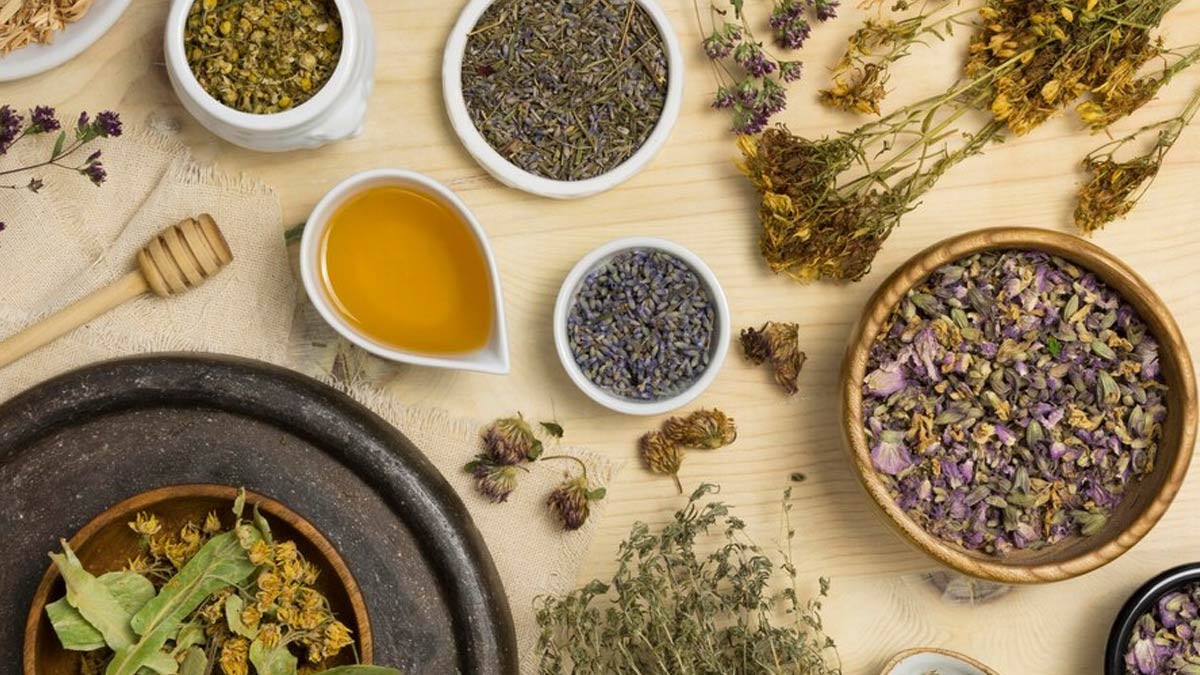
High blood pressure, or hypertension, is a common condition that affects over 100 crore people worldwide. Unfortunately, nearly half of them are unaware of their condition, according to the World Health Organization (WHO). If left unmanaged, the silent condition can contribute to the risk of heart disease, increasing your chance of having a heart attack or stroke.
Table of Content:-
While medication is one approach to managing hypertension, Ayurveda, with its holistic approach, including dietary changes, herbal remedies, and lifestyle modifications, can also help control blood pressure levels. Let us delve deeper into the conversation.
Also Read: Hypertension: 7 Foods For High Blood Pressure
Ayurveda’s Role In Managing Blood Pressure

Ayurveda is a traditional system of medicine that originated in India and is known to promote overall well-being through a balance of mind, body, and spirit.
When it comes to managing hypertension, Ayurveda uses herbs, diet tweaks, and calming techniques like yoga to help control blood pressure, said Dr Priya Chauhan, Ayurveda Expert, TAC, The Ayurveda Company.
"Herbs like sarpagandha and arjuna, combined with healthy habits, may naturally balance blood pressure," she added.
Ayurvedic Remedies

There are several natural remedies to manage hypertension, as per Ayurveda. These include:
Herbs
Ashwagandha, Brahmi, Arjuna, and Shankhpushpi are herbs said to contain properties that help regulate blood pressure. In a 2023 review published in the Journal Pharmaceutics, ashwagandha, or Withania somnifera, was found to have cardioprotective properties.
Dietary Recommendations
Ayurveda emphasises a low-sodium diet with potassium-rich foods like bananas and leafy greens and spices such as garlic and turmeric. Dr Chauhan shared a few dietary tips to follow:
- Low-fat milk or other milk products
- Add fruits and vegetables, such as amla, melons, mangoes, broccoli, grapefruit, peaches, dates, moringa, bananas, apples, peas, pineapples, and raisins, to your diet.
- Include whole-grain products.
- Use olive oil, corn oil, canola oil, and coconut oil in cooking.
- Include herbal teas like ginger tea, tulsi tea, cardamom ginger tea, and fenugreek tea.
Lifestyle Practices
Yoga and meditation can also help in managing hypertension, as they promote relaxation and stress reduction.
Also Read: Reasons Why People Develop High Blood Pressure. Know Prevention and Treatment of Hypertension
Diet Tips For Hypertension

For people battling hypertension, here are some dietary tips shared by Dr Chauhan:
- Consume two cloves of garlic on an empty stomach, or dilute 1/2 teaspoon of garlic juice in one tablespoon of water and take it twice a day.
- Make fresh juice from curry leaves; consume 10–20 ml once a day on an empty stomach.
- Overnight, soak coriander leaves in a glass of water, boil them in the morning on low heat, and consume on an empty stomach.
- Take a teaspoon of arjuna bark powder, boil it in a glass of water on low heat, and open the vessel until it reduces to ¼ of the whole amount. Consume it on an empty stomach.
Note: Consult an Ayurvedic expert for personalised advice on managing your blood pressure levels or hypertension.
Conclusion
Ayurveda is an age-old practice that combines dietary adjustments, herbal remedies, and lifestyle practices to help people manage several conditions, including hypertension. Since it involves a holistic approach and natural remedies, it is likely to have minimal side effects. However, it is still crucial to consult an Ayurvedic expert or a healthcare professional before resorting to it.
Also watch this video
How we keep this article up to date:
We work with experts and keep a close eye on the latest in health and wellness. Whenever there is a new research or helpful information, we update our articles with accurate and useful advice.
Current Version
